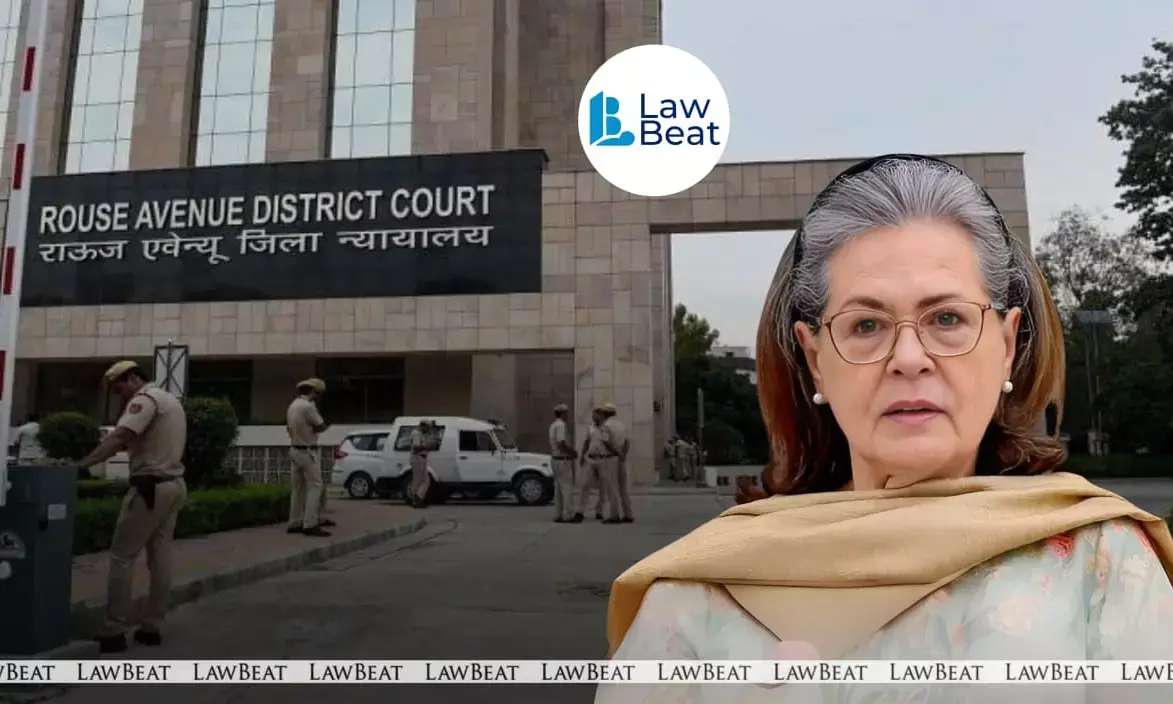Sonia Gandhi Electoral Roll Case: Citizenship Issues Lie Solely with Central Government, Says Delhi Court

Rouse Avenue Court adjourned the hearing on a revision plea seeking an FIR against Congress leader Sonia Gandhi over her alleged inclusion in electoral rolls before acquiring Indian citizenship
A Delhi Court today dismissed a criminal complaint seeking registration of an FIR against Congress leader Sonia Gandhi over the alleged inclusion of her name in the 1980 electoral roll before she acquired Indian citizenship.
The complaint invoked provisions of the Indian Penal Code, Bharatiya Nyaya Sanhita, and the Representation of the People Act, 1950, alleging cheating, forgery, and false declaration. The informant relied on a photocopy of an electoral roll extract and news reports to claim that Gandhi was registered as a voter in New Delhi in 1980, despite being granted Indian citizenship only in 1983 under Section 5(1)(c) of the Citizenship Act, 1955.
Rejecting the plea, ACJM Vaibhav Chaurasia observed that the allegations lacked the fundamental ingredients to constitute the offences of cheating or forgery and were based on “mere bald assertions” without legally sustainable evidence.
The Court held that the complaint was an attempt to misuse criminal law by projecting an ordinary dispute as a criminal matter to invoke its jurisdiction. "Such a course, in substance, amounts to a misuse of the process of law by projecting a civil or ordinary dispute in the garb of criminality, solely to create a jurisdiction where none exists," it said.
Most significantly, the Court underscored that it had no authority to adjudicate issues relating to citizenship or voter eligibility. “This Court is not empowered to adjudicate upon questions which, by express constitutional and statutory mandate, fall within the exclusive domain of the Central Government in matters relating to citizenship in view of Article 11 of the Constitution of India, 1950, and the Citizenship Act, 1955,” the order stated.
The Court further emphasized that the determination of inclusion or exclusion from electoral rolls lies solely with the Election Commission of India under the Representation of the People Act, 1950 and 1951.
Any interference by the Court, it said, would amount to “unwarranted transgression” into the constitutional functions of the competent authorities and a violation of Article 329 of the Constitution.
Concluding that the complaint was a clear abuse of the process of law, the Court dismissed it. "Such a stratagem constitutes nothing but an abuse of the process of law, which this Court cannot countenance. Complaint stands dismissed in limine," the ACJM observed.
Notably, on September 10, the Court had reserved its order in the criminal complaint filed by Advocate Vikas Tripathi.
The complaint seeks a thorough investigation into the purported irregularity, which, if proven, could have legal ramifications under the Representation of the People Act. Tripathi approached the Court under relevant criminal provisions, requesting that authorities initiate an inquiry into the matter.
Previously, Narang had submitted that documents show Sonia Gandhi acquired Indian citizenship on April 30, 1983. However, her name was included in the electoral roll for the New Delhi constituency as early as 1980.
Narang had told the Court that her name was deleted from the roll in 1982, only to be re-entered in 1983 after she obtained citizenship. “The reason for the deletion is nowhere to be found. There can be two reasons, either someone takes the citizenship of another country or files a Form 8 (application for correction in particulars). But the prerequisite is that the person has to be a citizen,” Narang had said.
He had questioned what documents were submitted to the Election Commission when her name was first included in 1980. “There is some forgery, and a public authority has been cheated,” he had alleged, urging the Court to direct the registration of an FIR under appropriate provisions of law.
Narang had clarified that he was not seeking to prejudge the case but only to trigger a lawful inquiry. “My limited request is to either direct the police to register an FIR. Whether the offences are made out or not is the domain of the police,” he had submitted. He further had requested that, in the interim, the court issue notice to the police to file a status report.
Sonia Gandhi, born in Italy, moved to India after marrying Rajiv Gandhi in 1968. She applied for Indian citizenship in 1983 and has since been a naturalized Indian citizen. Her citizenship has been a recurring point of political attack, especially from her opponents in the Bharatiya Janata Party and allied groups, who have questioned both the timing and the process of her naturalization.
Over the years, challenges to her citizenship status have reached various forums. In the early 2000s, a petition was filed before the Supreme Court questioning her eligibility to hold constitutional office on the ground of her foreign origin. The Court dismissed the plea, holding that she was a valid Indian citizen. In 2004, ahead of the general elections, the issue resurfaced when she was set to become Prime Minister after the Congress-led UPA’s victory. Intense political opposition over her foreign origin ultimately led her to decline the post, paving the way for Dr. Manmohan Singh’s appointment.
The present plea focuses narrowly on the question of electoral rolls. Under Indian law, only Indian citizens are entitled to be included as voters. If, as alleged, Sonia Gandhi’s name was indeed entered in 1980 before she was legally entitled, the matter could raise questions about procedural lapses or deliberate misrepresentation before the Election Commission.
At the same time, electoral rolls are compiled and revised by local officials, and errors of inclusion or deletion are not uncommon. Whether the alleged inclusion in 1980 was a mistake, a result of incomplete verification, or something more serious, would be a matter for investigation if the court directs one.
Case Title: Vikas Tripathi v. Sonia Gandhi
Order Date: September 11, 2025
Bench: ACJM Vaibhav Chaurasia
